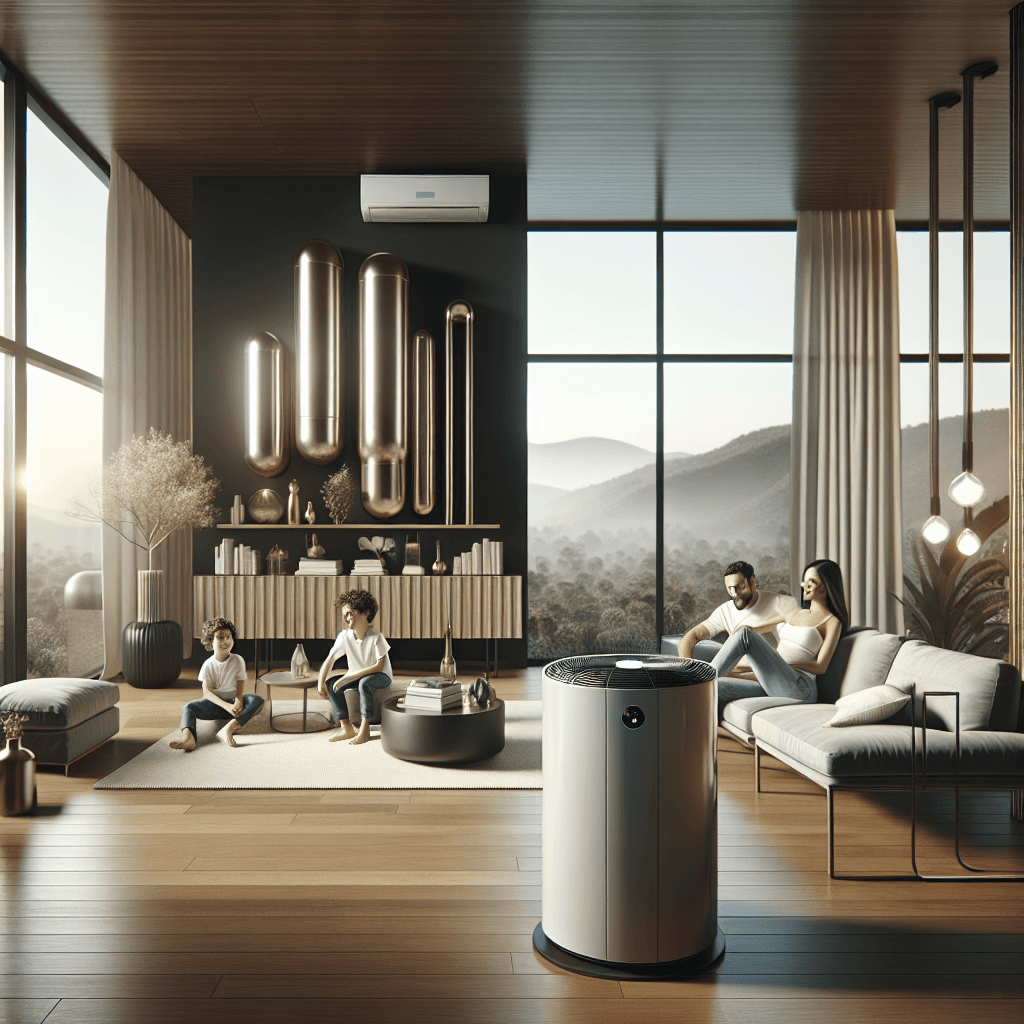- Published on
What's the Difference Between Heat Pumps and A/C Units? We Break It Down for You!

Heat pumps and A/C units: two heroes in the realm of home comfort, each with its own set of superpowers. At a casual glance, they seem to perform the same magical feat: keeping our homes pleasant when Mother Nature decides otherwise. But is a heat pump merely an air conditioner with a fancy name? Absolutely not. Let's unfold their mysteries and clear the air, quite literally.
What's in a Name: The General Overview
Let's start by understanding the basic roles of these two. Remember, both devices specialize in the art of temperature manipulation—but they have different endgames. An air conditioning unit is like a one-way street; it takes you comfortably to Coolsville during scorching summer days. A heat pump, on the other hand, is the roundabout of home climate control: it cools your home during summer and heats it when winter chills creep in.
The Art of Transferring Heat
Now, let's dive a bit deeper. At the core, both heat pumps and A/C units rely on the same scientific principle: they transfer heat. The air conditioner extracts heat from inside your home and expels it to the outdoors. A heat pump can do just that, but it can also reverse the flow, pulling heat from the outside air and moving it indoors when you need some warmth.
To the Heart: Why Heat Pumps and A/C Units Differ
Imagine you're at a fork in the road: the path of the air conditioner is a one-way route—cooling-only mode. The heat pump's road, meanwhile, is dual-directional; it comes with a heat mode and a cool mode. This is due to an extra piece of engineering wizardry called the reversing valve, which enables the heat pump to change the direction of refrigerant flow and thus its mode of operation.
Speaking Thermodynamics: Getting Technical
If we peek under the hood, both systems operate using a refrigeration cycle that involves a refrigerant, a compressor, an expansion device, and heat exchanger coils (evaporator and condenser coils). It's a bit like a high-stakes relay race where the refrigerant is the baton passing through different states—gas and liquid—absorbing and releasing heat in the process.
It's All About Direction
For A/C units, the race is straightforward. The refrigerant absorbs indoor heat, travels to the outdoor unit, releases the heat, and repeats the cycle. In contrast, a heat pump's refrigerant can run both to and fro, thanks to its versatility imparted by the reversing valve—a back-and-forth journey that allows for heating or cooling depending on your needs.
Efficiency Matters: The Seasonal Performance
Let's bring in some statistics: efficiency is often measured by SEER (Seasonal Energy Efficiency Ratio) for cooling and HSPF (Heating Seasonal Performance Factor) for heating. Air conditioners have SEER ratings but no HSPF since they don't provide heat. Heat pumps boast both ratings, indicating they are designed to optimize energy usage in both roles.
Maximizing the Potential: Environmental and Economic Impacts
Deeper in the details, the efficiency of a heat pump as a heating option is often highlighted when compared to traditional electric resistance heaters. If we equate energy to currency, a heat pump is like a savvy investor offering a better return on energy investment by moving heat rather than generating it—an economically friendlier option for your utility bills and the environment.
Climate Considerations
However, the effectiveness of a heat pump can wane in extremely cold climates; think of it as its kryptonite. It's like trying to draw water from a near-empty well. Conversely, A/C units remain largely unaffected by temperature extremes when cooling, as they're not tasked with sourcing heat from the frigid outside air.
Return on Investment: Long-Term Gains
Investing in a heat pump could be likened to planting a sapling that grows into a sturdy tree: initially more expensive than an A/C unit but potentially more cost-effective and environmentally balanced in the long run, thanks to its dual functionality and efficiency.
Final Recommendations: Tailoring to Your Home Experience
Now, to wrap this journey up with a homebound touch. If you're living in an area that enjoys mild winters and scorching summers, a heat pump might be your go-to for year-round comfort. It's akin to having a versatile wardrobe that works for both a sunny day and a chilly evening.
For those experiencing infrequent cold snaps, a standalone A/C unit paired with an alternative heating method could be the preferred choice. It's similar to having a summer wardrobe with a few cozy layers tucked away for the occasional cold front.
Whichever route you choose, remember to factor in your climate, lifestyle, and home design. Regular maintenance is also key to keeping your device running smoothly for years—think of it as the regular exercise and balanced diet of your heat pumps or A/C units.
In the end, it's about finding the best fit for the unique ambiance of your sacred space—your home—by understanding and utilizing the strengths of each system. Feel empowered to make that informed decision that best serves your comfort and embraces the essence of your living experience.